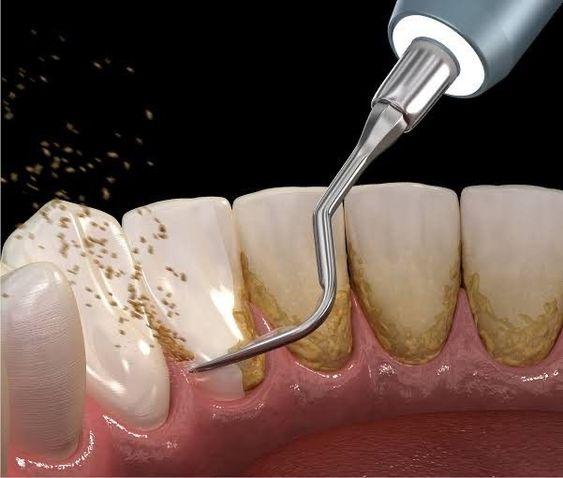Dental Plaque: What It Is, Why It Matters, and How to Handle It

A term very frequently thrown about, yet few of us actually know what it is and how it's affecting our oral health. Bad breath and cavities are just two of the side effects of plaque, should it go unchecked. In this article, we will talk about the ins and outs of dental plaque, why we should keep it under control, and how you can prevent it as well as treat it accordingly.
Source: https://thedentalcure.com/dental-plaque/
What Is a Dental Plaque?
Dental plaque is the semi-solid film, colorless or pale yellow in color, that gathers on your teeth particularly where your teeth meet your gums. Essentially composed of bacteria, bits of food, and saliva accumulated throughout the day, plaque is largely deposited at the point where the teeth touch the gum tissue. Because plaque forms naturally and may start to harden within several hours after brushing, hygiene practice needs to be done every day.
Dental plaque is a formation that comes about with the mixing of sugars and carbohydrates in your diet with the bacteria present in your mouth. They use sugars for food therefore creating acids that can penetrate the enamel of the teeth and cause cavities if left in a place for too long. After some time, plaque gets to be tartar, which is only something a dentist can remove.
Why Dental Plaque Matters?
Plaque is more than a nuisance; it actually causes several severe dental issues for example:
Cavities: The acids that plaque-causing bacteria produce dissolve the enamel of your tooth that produces small holes that we term cavities.
Gum Disease: It develops a mild gum disease called gingivitis and is usually seen through the appearance of red, swollen, or bleeding gums. If left untreated, it turns into periodontitis, a more dangerous gum disease .
Bad Breath: The gasses produced due to bacteria within plaque result in bad breath.
Tartar Build Up: The plaque that is not cleaned often dries up and turns into tartar that irritates the gums even further and causes even worse problems.
Signs of Plaque Development
Understand what it feels and looks like to know you can take action before it becomes major. Several typical signs of plaque development include:
Persistent bad breath
Visibly distinct film or discoloration on your teeth
Fuzzy texture along the surface of your teeth
Red, swelling, or bleeding gums
Tooth sensitivity to hot/cold foods and drinks
If you have one of the symptoms listed here, then you ought to do something to alter your oral hygiene routine or consult a dentist.
How to Prevent Dental Plaque?
Preventing dental plaque is not that difficult. It actually depends on good oral hygiene and healthy habits. Here are some of the major steps to prevent dental plaque from forming:
Brush Daily: Brushing with fluoride toothpaste for at least two minutes twice daily is a must to cleanse the teeth. Pay extra care to areas near the gum line.
Floss Once a Day: You cannot clean between the teeth using a brush, and plaque is formed mainly in that area, so floss once a day to remove all the particles.
Use Mouthwash: You can also use antibacterial mouthwash to further minimize the presence of plaque-causing bacteria in the mouth.
Reduce Consumption of Sugary Foods and Beverages: Avoid eating as much sugar-based food and drinks as possible because they feed the plaque-forming bacteria.
See Your Dentist Occasionally: Deep cleanings remove plaque and tartar that brushing and flossing cannot reach.
How To Treat Dental Plaque?
A person may maintain perfect hygiene of the mouth yet end up developing plaque. Here is how to treat it before it becomes more of a dental problem.
Use Fluoride Toothpaste: This helps to cement together your teeth and is very effective in reversing all the early damage caused by plaque from cavities.
Visit Your Dentist or Hygienist Regularly for Professional Cleanings: In addition to cleaning all the nooks and crannies, professional cleanings remove plaque that prevents the development of tartar, keeping your mouth free of cavities and gum disease.
Scaling and Polishing: Once the plaque dries, it dries into tartar. Your dentist can then scale that away. The dentist then polishes the surface of your teeth.
Natural Remedies Against Plaque Formation
You should know that even though your professional care is always essential, natural remedies complement your efforts not to form plaque. Some of them are as follows:
Oil Pulling: Swishing coconut or sesame oil in the mouth for 10-20 minutes can also help to cut down on the dangerous bacteria.
Baking Soda: While brushing your teeth, baking soda can be added as it helps to neutralize the acid in the mouth and ward off plaque.
Tea Tree Oil: Add just a few drops of tea tree oil to your toothpaste so that it counteracts bacteria and reduces plaque.
Green Tea: Drinking green tea can further slow the growth of plaque because it contains antibacterial properties.
These treatments can further enhance oral hygiene but should not be used to replace regular brushing, flossing, and scheduled appointments to the dentist.
Dental Plaque and Your Overall Health
Plaque is not only a disease of the mouth but also of the body. Further studies have indicated that dental plaque and unsanitary oral hygiene habits are linked to several diseases including:
Heart Diseases: Bacteria that cause plaque can swim up through your bloodstream, thus making you even more susceptible to this disease.
Diabetes: Bacteria that cause gum diseases can make it harder to regulate blood glucose levels; complicating diabetic patient management.
Respiratory Diseases: Oral pathogens can travel via inhalation and lead to pneumonia or other respiratory infections in immunocompromised persons.
Healthy gums and teeth are directly related to your overall body, so plaque should not be treated lightly as part of a complete care program.
Frequently Asked Questions about Dental Plaque
Q: Can you remove plaque without visiting the dentist?
Plaque can be removed at home with brushing and flossing, but tartar, which is the hardened plaque, cannot be removed through oral hygiene alone and has to be professionally cleaned by a dentist.
Q: How long after you brush do you get plaque?
Plaque can begin to appear on your teeth within 4 to 12 hours of brushing so brush twice a day and do not leave it for a single day.
Q: What foods bring plaque onto your teeth?
All three: Candy, bread and chips are sugar and starch food feeding the bacteria of plaque. These bacteria use this food to multiply, and therefore, produce more acids harmful to our teeth.
Q: I replace brushing by using mouthwash?
Mouthwash is a fantastic adjunct to your oral hygiene but can never replace brushing or flossing. Now, whereas mouthwash is fantastic at killing so much bacteria, it can't eliminate plaque like brushing and flossing.
Q: Is dental plaque the same as tartar?
Plaque is the sticky film that forms on your teeth, whereas the hardened plaque needs professional removal.
Conclusion
Dental plaque looks like no big deal but if not checked then will lead to critical dental and general health effects. The good news, however, lies in good oral hygiene for which you will be able to manage and prevent its growth. Normal brushing, flossing, and regular visits to the dentist will ensure a healthy smile and prevent complications that may arise from plaque.
Tracking plaque control is protective of your teeth and gums but healthy for the entire body as well.











Comments